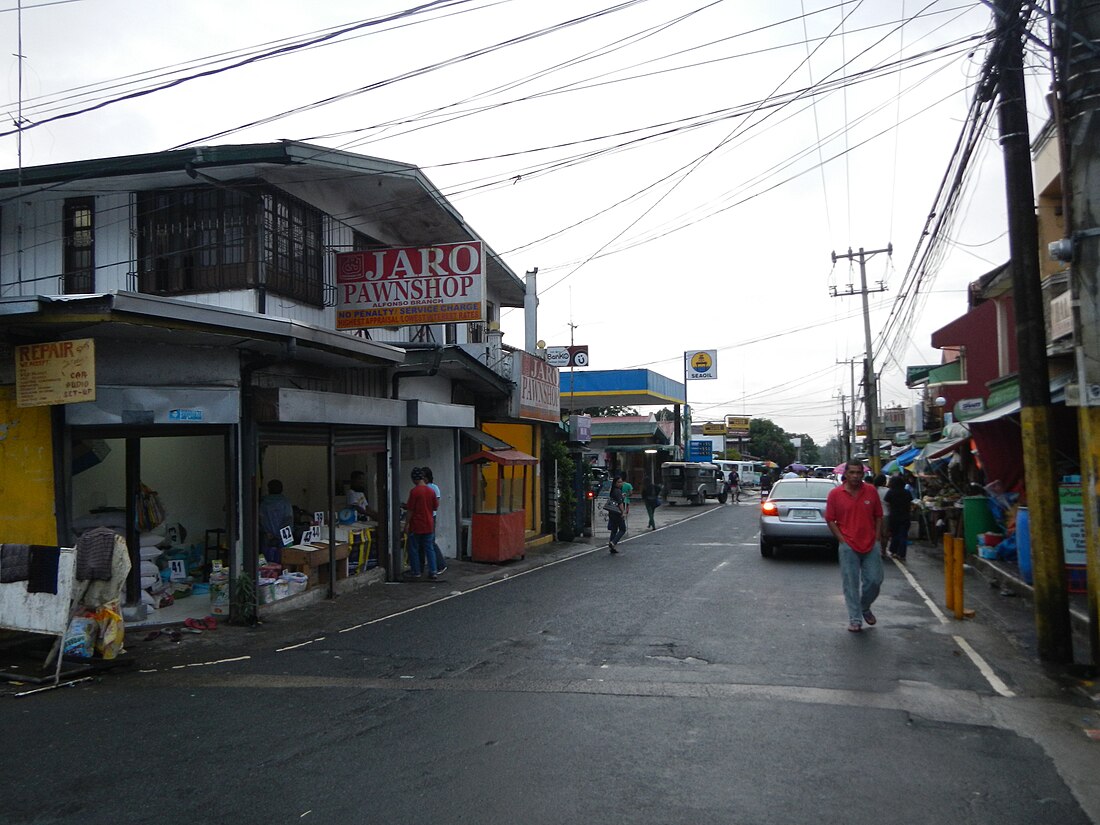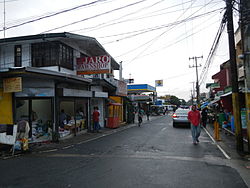Top Qs
Timeline
Chat
Perspective
Alfonso, Cavite
Municipality in Cavite, Philippines From Wikipedia, the free encyclopedia
Remove ads
Alfonso, officially the Municipality of Alfonso (Tagalog: Bayan ng Alfonso), is a municipality in the province of Cavite, Philippines. According to the 2020 census, it has a population of 59,306 people.[5]
This article needs additional citations for verification. (January 2016) |
Remove ads
History
Summarize
Perspective
Alfonso was totally forested until the 17th century when a few pocket settlements sprouted. The town was originally part of Barrio Lumampong in the town of Indang. In the course of time, the pocket settlements grew into sitios and later on into barrios. The town became a separate district municipality from Indang on March 16, 1859 through the efforts of the community leaders Bonifacio Aveo and Felix del Mundo. The new town was called Alas-as for a period of seventeen years.
The name refers to the pandan tree used for the construction of houses and bears sweet fruit. It was, eventually, named after King Alfonso XII of Spain, son of Isabella II. Alfonso was initially composed of the barrios of Taywanak, Pajo, Esperanza, Marahan, Matagbak, Sinaliw and Kaytitinga. Don Narciso Mojica was the capitan municipal of Alfonso at the outbreak of the Philippine Revolution. A few days after the Cry of Balintawak, on August 31, 1896, General Mariano Trias ordered the liquidation of all Spaniards in the municipality. In the bloody battle that followed, the leaders of the revolutionists were General Hipolito Rint, Captain Eriberto Cetro (Kapitan Berto) and Predencio Rolle (Tandang Doro).[6][7]
On October 15, 1903, the adjacent towns of Bailen and Mendez-Nuñes merged with Alfonso by virtue of Act No. 947 enacted by the Philippine Commission.[8] Both towns were later separated in 1915 to become independent once again.[9]
Remove ads
Geography
Summarize
Perspective
Alfonso is an upland town situated at the south-western portion of the Cavite province. It is 74 kilometers (46 mi) from Manila via Tagaytay. Magallanes bounds it on the west, Batangas province on the south, Mendez and Tagaytay on the east, General Aguinaldo on the north-west and Maragondon and Indang on the north-east.
Barangays
Alfonso is politically subdivided into 32 barangays, as indicated in the matrix below.[10] Each barangay consists of puroks and some have sitios.
Climate
Remove ads
Demographics
In the 2020 census, the population of Alfonso, Cavite, was 59,306 people,[18] with a density of 890 inhabitants per square kilometre or 2,300 inhabitants per square mile.
Economy
Poverty incidence of Alfonso
5
10
15
20
25
30
2000
27.87 2003
16.02 2006
17.30 2009
13.78 2012
5.99 2015
4.77 2018
5.26 2021
13.22 Source: Philippine Statistics Authority[19][20][21][22][23][24][25][26] |
Government
Local government

The following are the duly elected officials of Alfonso, Cavite for the term 2022–2025.
Remove ads
References
External links
Wikiwand - on
Seamless Wikipedia browsing. On steroids.
Remove ads






